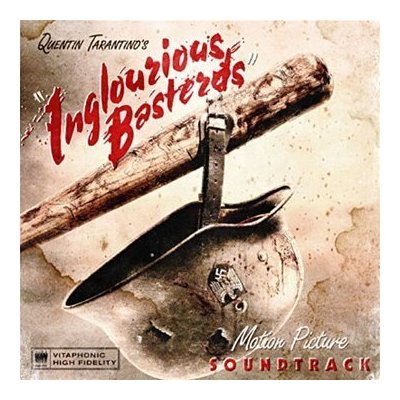
The Green Leaves of Summer
by ALEX CARNEVALE
The Third Reich is too large to be absorbed from any one angle. The Nazis were the darkest enemies of mankind, and it is hard to believe they even existed. The central Nazi in Inglorious Basterds is Col. Hans Landa, a captain in the SS who got the anecdotal slag of 'Jewhunter.' Young Jewish men everywhere, encouraged by the perpetual sneer on Col. Landa's mug, rumble with plans to destroy this villainous creature. Quentin Tarantino makes the other wet dream of every Jewish boy a reality.
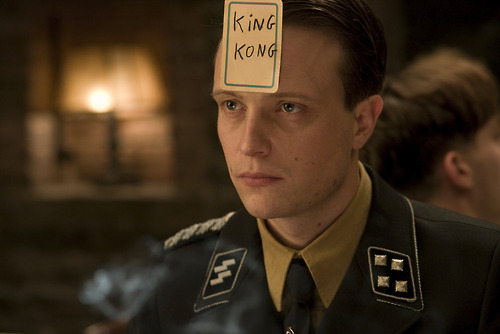
Only the boy isn't really Jewish, he's a Gentile. Tarantino loves all sorts of people, all different types of directors. He's also not exactly subtle about showing off his allegiance to each of them. Tarantino's uncircumsized ex-Baptist Aldo (Brad Pitt) is Errol Flynn part seventeen, a hunkering lout of virtue and good will towards men. He joins the 800+ filmic references in Basterds, from Footloose to Godard to DePalma to Kiarostami to Kubrick and around the world entire.
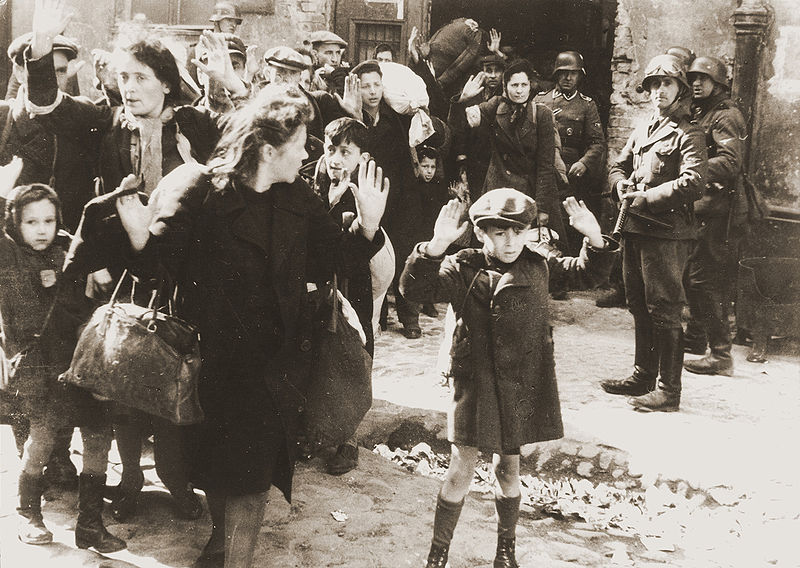
Tarantino is suggesting that the culture of the Jew should be expanded to include the plight of people of color, the plight of his own Italians, and the plight of blonde-haired "Jews" with blue eyes who believe they also to have something to fear. Quentin isn't the first wannabe Jew, everyone quakes in delight at being 'chosen.' Like the formality of an SS uniform, it allows us our darker pleasures.
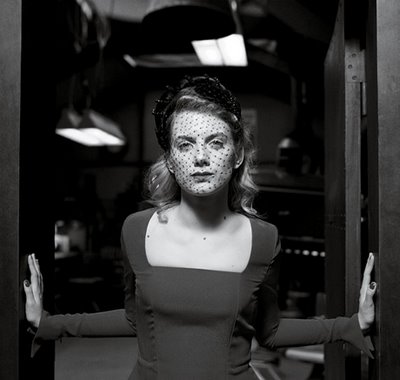
Because the Gentile shares the aims of the Jews, wishes to become a Jew, Aldo's mixed fighting force of Basterds is the result. Tarantino lets his horror f-buddy Eli Roth star in the film along with Jews like Samm Levine and B.J. Novak, and to no one's surprise they are all pretty terrible. The Gentile members of the crew aren't much better. Tarantino's method of shooting demands excited, if not particularly-inspired performances from his actors. Even Goebbels is more gigglish, immature fop than serious obstacle.
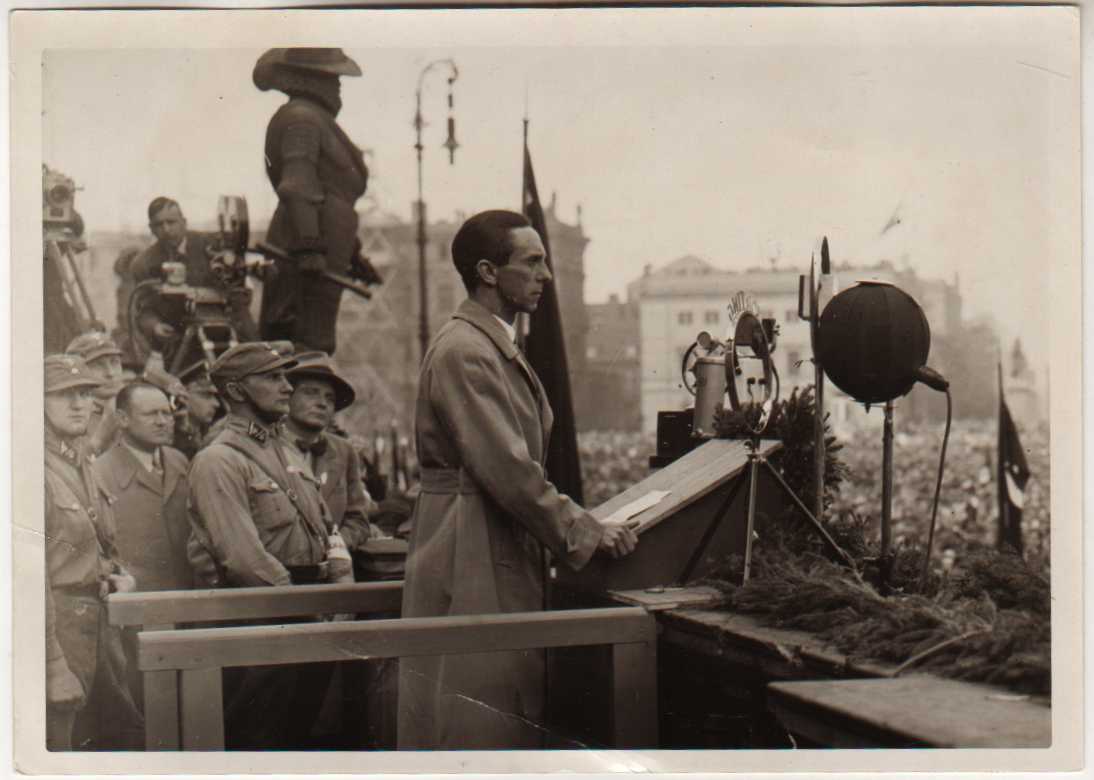
As Hans Landa, the villain around which ethnicities oscillate, Christoph Waltz is the exception. He carries Inglorious Basterds through the total embodiment of evil, throttling a woman if the situation demands it, or simply suggesting he'd prefer milk over wine. Each is equally sinister. It is an ongoing surprise to us all that Earth contains these creatures who ruled the Gestapo and were the hardest of the orc-like men.
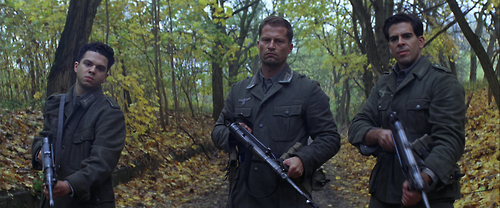
In contrast, the film sets up a would-be hero and dismisses him savagely. No one is safe from Tarantino's characteristic bloodshed, and once again that's eternally the point. Looking at any part of the Third Reich can be confusing, as with the dark side of an object viewed from the front. Can we really believe that another part of it isn't there?
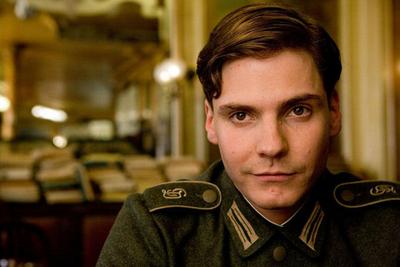
This movie drew a considerable Jewish audience at a theater in Manhattan, but there is much to recommend for the Gentile in Inglorious Basterds as well. Really this film is for him, for no moral query about this period could be asked of a Jew. We know his answer. The question is posed to the Gentile; he must respond to the intractable Jewish question. Should hatred and fear be countered with even larger levels of violence, or shouldn't they? Is it wrong to take pleasure in killing the men who end the world?

It isn't, and once you get that under your hat, you're halfway towards grasping the particular psychology of Shosanna Dreyfus, which to my ear is a rather Gentile-sounding name. Handed a star-making role, our Jewess heroine is no Barbra Streisand, she isn't Rita Hayworth. She is an icy blonde who confines her hirsute relationship with her French African employee to chaste kisses.
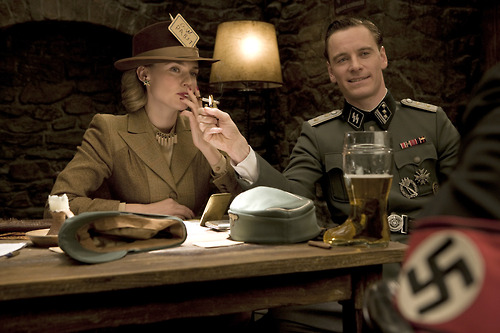
In the film's climactic moment she invites a movie star into her quarters and gives over to him more than she would a mere fling. We require the Nazis to remind Gentiles of what they can become upon giving in to such disturbing moments. Without them, how would we measure how to stretch ourselves, how much we treasure human decency and love?

War is harsh, Tarantino writes. He makes it flashy and he casts Diane Kruger for throaty Uma Thurman laughs, but there is no suitable reaction to the violence that surrounds such frivolity. At more than one point more than 20 men die in mere seconds. This is real sacrifice, Tarantino says, what war takes from its soldiers: everything.

Why did America defeat the Nazis after resolving to ignore them? Our later certainty over our moral role in the fate of Europe's Jews flattens the real debate that occurred over whether this was America's war to be involved in. Many resolved that the United States would ignore the fractious bickering of European powers.

Inglorious Basterds takes place mostly in France when it was occupied, one of the more polite occupations in human history. The French people weren't alone in being cowed by the Nazis, but surrender often looks better with victory behind you. Watching the Nazi vermin walk among the high places of France is a test run for how they might have lived with dominion over the larger world. "I'll get a few paintings from the Louvre to spruce this place up!" Goebbels laughs.
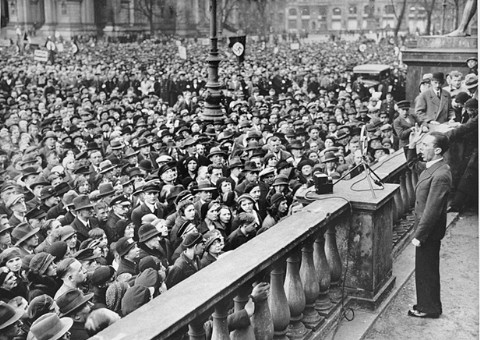
When it came to it, a Nazi in hiding in this country could look like other men, blend into the fabric of the land and renounce the evil he served. Therefore the Basterds mark those they leave alive by carving a swastika above the brow, for a permanence that no longer exists in our world, where mad ideologies comfort each other on the internet.
Tarantino puts women in the center of his action. (His part of the Grindhouse double feature Death Proof is perhaps the most feminist film of the 2007 period.) He loves women, loves to watch them press and push through the stolid workings of men. He adored Uma Thurman's earthy sexuality, and he's equally eager to worship at the altar of French actress Melanie Laurent. This is my favorite scene with Laurent, where she prepares for her life as a beautiful but deadly destroyer of Nazi-kind:
She and Kruger operate as scale models of themselves in miniature. They do what needs to be done to further the aims of the Republic. In this way, they are like Jedis, or at least highly eroticized llamas.
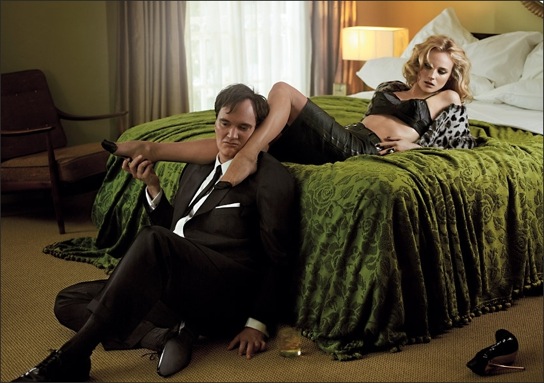
There is nothing else like the abandon Tarantino shows in these moments. He is a fearless filmmaker, marking the treads between people like hands on the clock of history. He may mix metaphors worse than that, but each "chapter" — as the sections of the films announce themselves — is a beginning worthy of the masters he first saw when he worked as a clerk in a video store.
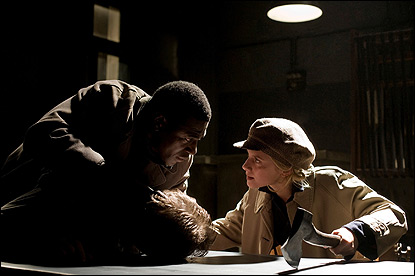
Since video stores are going out of business and will soon be relegated to the place where horse-drawn carriages and telegraphs await us, it is appropriate to credit them for making Mr. Tarantino, who can foist such evil on us with a knowing delight.
Alex Carnevale is the editor of This Recording. He tumbls here.
"The Surrender" — Ennio Morricone (mp3)
"The Green Leaves of Summer" — Nick Perito (mp3)
"Tiger Tank" — Lalo Schifrin (mp3)
"Slaughter" — Billy Preston (mp3)
